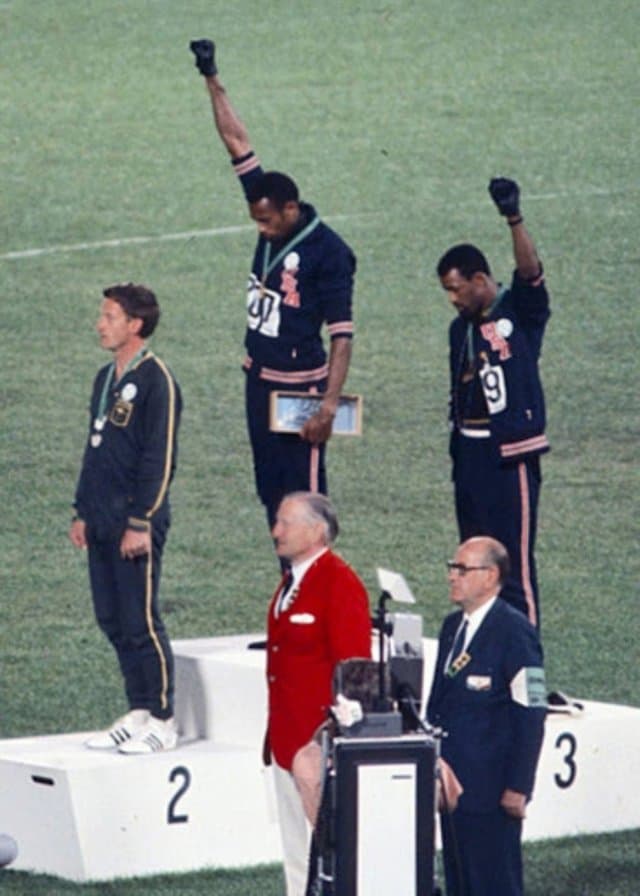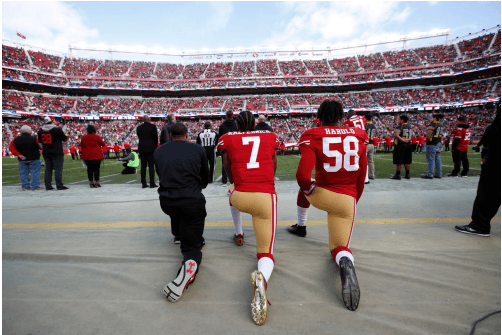African Americans and Sports
Adam King
7 min read
Listen to this study note
Study Guide Overview
This study guide covers the contributions of Black athletes, focusing on early pioneers, the Colored Hockey League, Negro Leagues and integration, and Olympic achievements. It also examines how athletes contested discrimination, including breaking barriers and advocacy, Muhammad Ali's protest, the 1968 Olympics Black Power demonstration, and Colin Kaepernick's protest against police brutality. Key figures like Jackie Robinson, Jesse Owens, Muhammad Ali, Tommie Smith, John Carlos, and Colin Kaepernick are highlighted. The guide also provides exam tips for multiple-choice, short answer, and free response questions.
#AP African American Studies: Sports & Activism - The Night Before Guide 🚀
Hey! Let's get you prepped and confident for your AP exam. This guide is designed to be your go-to resource tonight, focusing on key concepts, memory aids, and exam strategies. Let's make sure you're ready to ace this!
#1. Contributions of Black Athletes
🏆
#1.1 Early Pioneers (19th Century)
- Breaking Barriers: African American athletes showcased incredible talent in segregated sports.
- Kentucky Derby: Oliver Lewis (1875) and William "Billy" Walker (1877) were early Black winners, dominating until the early 20th century. 🏇 *
Black jockeys were prominent in early American horse racing, demonstrating their skill and expertise.
- Negro Leagues: Established after the Civil War, these leagues provided opportunities for Black baseball players to excel. ⚾ *
These leagues were vital for showcasing talent despite segregation.

Image: African American jockeys in 1840, highlighting their early prominence in horse racing.
#1.2 Colored Hockey League
- Origins: Founded in Halifax, Nova Scotia (1895), before the NHL. 🏒
- Expansion: Teams formed across the Maritime provinces of Canada, providing a platform for Black hockey players.
#1.3 Negro Leagues & Integration
- Segregation's Impact: Led to the creation of Negro Leagues, offering a space for Black baseball players to compete.
- Resilience: These leagues were a testament to the determination of African American athletes.
- Jackie Robinson: Broke the color barrier in 1947, integrating Major League Baseball. 🌟 *
Robinson's integration was a major step towards equality in sports.
#1.4 Olympic Achievements
- International Stage: African American athletes have consistently won gold medals for the U.S. 🥇
- Jesse Owens: Won four gold medals at the 1936 Berlin Olympics, challenging Nazi ideology. 🏃🏾♂️ *
Owens faced discrimination upon returning to the U.S. despite his achievements.
Practice Question
Multiple Choice Questions
-
Which of the following best describes the significance of the Negro Leagues in American sports history? a) They were a minor league system for Major League Baseball. b) They provided opportunities for Black baseball players to compete and showcase their talents during segregation. c) They were primarily for entertainment and did not produce any notable players. d) They were only active for a brief period and had little impact on the sport.
-
What was a significant outcome of Jackie Robinson integrating Major League Baseball in 1947? a) It led to the immediate end of racial segregation in all sports. b) It had little impact on the broader civil rights movement. c) It paved the way for future generations of African American athletes in professional sports. d) It resulted in the decline of the Negro Leagues.
Short Answer Question
Briefly explain the impact of Jesse Owens's performance at the 1936 Berlin Olympics on both sports and racial relations.
#2. Contesting Discrimination in Sports
✊🏾
#2.1 Breaking Barriers & Advocacy
- Platform for Change: African American athletes have used their influence to advocate for racial equality. 🗣️
- Challenging Discrimination: By excelling and speaking out, they have played a key role in promoting social change.
#2.2 Muhammad Ali's Protest
- Vietnam War: Ali refused to enlist in 1967, citing religious reasons and racism. 🥊 *
Remember Ali's quote: "The real enemy of my people is right here."
- Intersection of Issues: His actions highlighted the link between race, politics, and sports.
#2.3 Olympic Black Power Demonstration
- 1968 Olympics: Tommie Smith and John Carlos raised their fists in a Black power salute. ✊🏿 *
This was a powerful symbol of protest against racial injustice.
- Global Attention: The protest brought international focus to the civil rights struggle.

Image: Tommie Smith and John Carlos's iconic protest at the 1968 Olympics.
#2.4 NFL Kneeling & Police Brutality
- Colin Kaepernick: Began kneeling during the national anthem in 2016 to protest police brutality. 🏈 *
Remember Kaepernick's protest as a key example of athlete activism.
- Nationwide Conversation: His protest sparked a movement across various sports.
- Power of Sports: Highlighted sports as a vehicle for social change.

Image: Colin Kaepernick kneeling during the national anthem.
Practice Question
Multiple Choice Questions
-
What was the primary reason behind Muhammad Ali's refusal to enlist in the U.S. Army during the Vietnam War? a) He was physically unfit for military service. b) He had a personal conflict with a military officer. c) He cited religious reasons and the ongoing racism in America. d) He wanted to focus on his boxing career.
-
The 1968 Olympic Black Power demonstration by Tommie Smith and John Carlos is best described as: a) A celebration of American athletic achievements. b) A silent protest against racial injustice in the U.S. c) A call for increased funding for Olympic athletes. d) An endorsement of the Vietnam War.
Free Response Question
Analyze how African American athletes have used their platforms to protest racial discrimination from the 19th century to the present day. In your response, discuss at least THREE specific examples and explain the impact of their actions on sports and society. (6 points)
Scoring Rubric
- Point 1: Identifies a relevant example of an African American athlete protesting racial discrimination in the 19th century.
- Point 2: Explains the specific context and impact of the 19th-century example.
- Point 3: Identifies a relevant example of an African American athlete protesting racial discrimination in the 20th century.
- Point 4: Explains the specific context and impact of the 20th-century example.
- Point 5: Identifies a relevant example of an African American athlete protesting racial discrimination in the 21st century.
- Point 6: Explains the specific context and impact of the 21st-century example.
#3. Final Exam Focus 🎯
- High-Value Topics:
- Common Question Types:
- Multiple-choice questions that test your knowledge of key figures, events, and their impact.
- Short answer questions requiring concise explanations of historical significance.
- Free response questions that ask you to analyze the impact of athlete activism on sports and society.
- Exam Tips:
- Time Management: Quickly identify key terms and focus on the main question.
- Avoid Generalities: Provide specific examples and detailed explanations.
- Connect the Dots: Show how different events and figures are interconnected.
- Stay Calm: You've got this! Review these notes and trust your preparation.
Remember "P-A-C-E" for your FRQs:
- Platform: How did the athlete use their platform?
- Action: What specific action did they take?
- Context: What was the historical context?
- Effect: What was the impact of their action?
Good luck! You're going to do great! 💪🏾
Continue your learning journey

How are we doing?
Give us your feedback and let us know how we can improve





